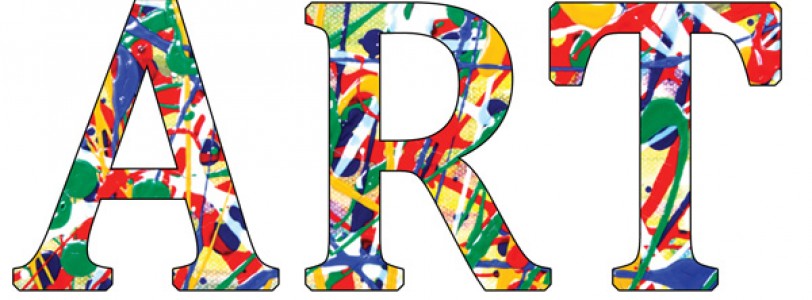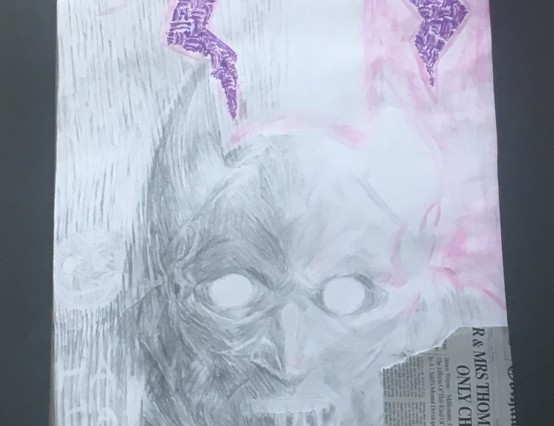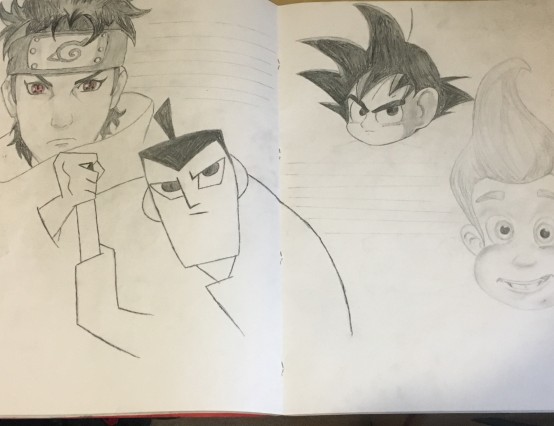People seem to think that the creative subjects are reserved for people that are either not interested in, or incapable of, excelling in the ‘academic’ subjects like maths and the sciences. I know that this is not true because I like a range of subjects and ideas - maths, physics, history, classic literature, languages (Latin, Spanish, Japanese, Hebrew, not English!), philosophy, psychology, for instance. However, when it comes to school, my two best things are to study physics and to draw. These are supposed to be at different ends of the school corridors and in different part of the curriculum. I think this is not right. On the other hand, there is an argument that there is only so much time for teaching at school and that time should be dedicated to the core subjects like maths and the sciences.
Some also believe that arts education only distracts from 'more important subjects' like maths and English. I disagree. Britain's engineering and creative industries are globally unique because of the influence of non-academic subjects that are part of the British educational system, especially art. According to the article referenced above in The Telegraph, a senior economist from the People' Republic of China, revealed that China holds Britain in high esteem, “for two very important reasons”: financial service and engineering design, as well as the creative industries. The government of Korea reached out to North London Collegiate School in order to set up a school in Jeju, so that Britain could help to develop creative thinking and leadership skills in Korean pupil through the use of British extracurricular programmes and encouraging way of teaching. I think this makes evident the fact that the British extracurricular subjects such as, art, D&T and Business Studies, give Britain a unique edge that the rest of the world desires.
Creative subjects like art and D&T are also important in education because they can actually be used to teach academic subjects as well. Studies show that a person naturally has a dominant side of the brain, either left or right. The left side of the brain is in charge of rational thinking and understanding things in letter and numbers, meaning that 'left brainers' learn better via the conventional method of using textbooks. However, the right side of the brain is more analytical than the left and understands things better in pictures (https://www.envisionexperience.com/blog/the-science-of-learning-part-6-right-brain-vs-left-brain). This suggests that the best way for 'right brainers' to be taught is with subjects such as art. A great example of this way of teaching is from a YouTube channel called 'Vihart' – https://www.youtube.com/user/Vihart. Vihart uses doodles to explain complex mathematical concepts. But that is not all! Studies show that exercising both hemispheres of the brain, gradually helps to develop a more efficient way of thinking. To achieve that there should be a balance between creative arts and textbook learning even in teaching academic subjects.
Although deciding to keep creative arts does have its good points, not everything about art education in the school curriculum is perfect. Statistics show that only the subject, art & design, has had an increased number of GCSE entries compared to the other creative subjects like drama, music, expressive and performing arts, which have reduced by almost thirty percent in the last five years. In this same period of time there has been a reduction, by more than ten percent, of students electing English Literature. I agree that English literature is a big part of Britain's identity (https://duplicatekey.wordpress.com/2011/08/25/the-importance-of-studying-history-of-english-literature-a-post-study-reflection/) and that by offering subjects like art as an alternative, we are losing the identity that literature fosters.
While there is the valid argument for the awareness of our identity and developing it, even the scientist, Charles Darwin, agreed that losing an appreciation for the arts is the same as losing happiness and could even harm intellectual development and moral character by making us lose touch with the emotional side of our nature. I think this would be a greater loss than that created by a loss of cultural identity. My art fulfills many roles for me – entertainment, an escape, a medium of expression, creating and recording memories, understanding fictional characters and understanding the world around me. I think this benefit can be experienced by so many others if they are introduced to the world of creative arts and could even then be used to increase the knowledge of cultural identity mentioned above. However, I understand that as much as the creative subjects are beneficial for many reasons, the teaching of more academic subjects like maths and science are what have put Britain in the top list for careers like medicine, engineering and similar jobs in technology and enterprise and they need to be maintained.
To conclude, I had always known that the arts have been considered a ‘soft’ subject and an easy option, but it was quite disappointing to see how that idea is being encouraged by the government trying to sideline them in schools. I like arts but I also like physics and maths. I had always wondered why people that admired my drawings would seem more impressed when we started talking and they found out that I liked physics and maths. My research has shown me that it is because there seems to be some sort of belief that the creative subjects are only reserved for people that are ‘non-academic’. This is not true. Having said that, I also do not think that these creative subjects should be taught at the expense of the others that are more useful for 'real life' such as maths, science and technology, which are useful for problems that may be encountered in day-to-day living. To that end, even though the increasing demand for art as a subject seems to be slightly detrimental to the number of people taking subjects like English Literature, maths and the sciences, it is evident that teaching it, and other creative subjects, is essential for continuing to develop good social skills, creating a balanced educational curriculum and for maintaining the communication, problem-solving and thinking skills that make us uniquely British and an envy of the rest of the world.
References:
https://www.telegraph.co.uk/education/2016/05/04/arts-education-in-the-uk-is-the-envy-of-the-world-but-it-is-bein/, 'Arts education in the UK is the envy of the world, but it is being sidelined in schools', May 2016.
https://www.envisionexperience.com/blog/the-science-of-learning-part-6-right-brain-vs-left-brain, 'The Science of Learning, Part 6: Right Brain vs. Left Brain', November 2015.
https://duplicatekey.wordpress.com/2011/08/25/the-importance-of-studying-history-of-english-literature-a-post-study-reflection/, 'The Importance of Studying History of English Literature: A Post-Study Reflection', August 2011.








Jaya, this is interesting and I believe very significant information. We are now discovering how various forms of creativity is healing and how it helps develop emotional intelligence.